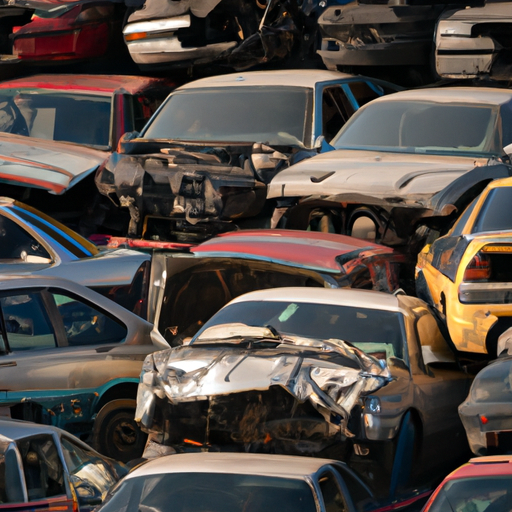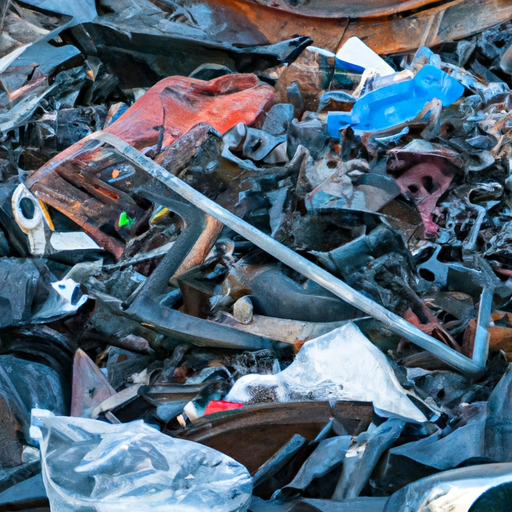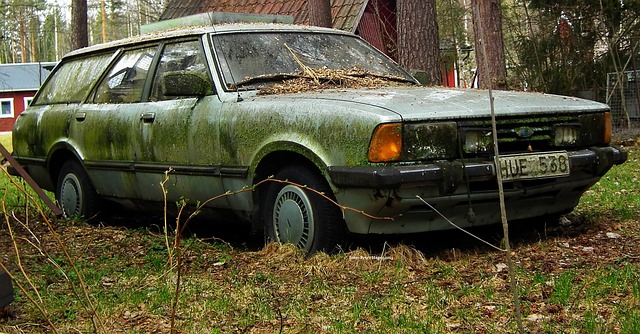This blog post explores the world of car junk yards, often underappreciated but vital components of the automotive industry. It delves into the purpose and functioning of these facilities, the environmental impact and the economic value they create by recycling automotive parts.
1. What Lies Beneath the Rust and Dust?
Car junk yards, often dismissed as nothing more than a graveyard for old vehicles, hold a mysterious allure. Beneath the layers of rust and dust lies a treasure trove of automotive history and potential. These yards are home to a vast collection of vehicles, ranging from classic cars to modern-day models, all waiting to be discovered and revived. Each car has a story to tell, whether it’s a relic from a bygone era or a once-beloved daily driver. Exploring these junk yards is like stepping back in time, as you uncover the remnants of automotive culture and witness the evolution of design and technology. It is a world where the past coexists with the present, and where the possibilities for restoration and repurposing are endless.
Walking through a car junk yard, you can’t help but wonder about the journeys these vehicles have taken. Some may have been the pride and joy of their owners, cherished and meticulously maintained until they were no longer roadworthy. Others may have met unfortunate fates, victims of accidents or natural disasters. Regardless of their history, these cars now sit abandoned, waiting for their fate to be determined. As you wander among the rows of vehicles, you can’t help but feel a sense of nostalgia and curiosity. What stories do these cars hold? What adventures have they been a part of? It is a reminder that even in their dilapidated state, these cars still have a story to tell.
Beyond the sentimental value, car junk yards also offer a practical solution for car enthusiasts and DIY mechanics. These yards are a treasure trove of spare parts, offering a cost-effective alternative to purchasing new components. Whether you’re restoring a vintage vehicle or repairing a modern car, you can often find the parts you need in a junk yard. This not only saves money but also reduces waste by giving old parts a new lease on life. It’s a win-win situation, where car enthusiasts can find the missing pieces to complete their projects while also contributing to a more sustainable approach to vehicle maintenance.

1. A panoramic shot of a car junk yard, filled with rows of old vehicles waiting to be recycled.
2. ‘One Man’s Trash Is Another Man’s Treasure’: The Economic Perspective
In the world of car junk yards, the saying “One man’s trash is another man’s treasure” could not be more true. From an economic perspective, these yards play a crucial role in the automotive industry and the local economy. Let’s explore this perspective further by examining three key aspects:
salvageable parts, job creation, and the aftermarket industry.
- 1. Salvageable Parts:
Car junk yards are a goldmine for salvaging usable parts from vehicles that would otherwise go to waste. When a car is deemed no longer roadworthy, it doesn’t mean that every component is damaged beyond repair. Skilled mechanics and car enthusiasts can find valuable parts like engines, transmissions, body panels, and electrical components that can be refurbished and resold. This not only provides a cost-effective option for those in need of replacement parts but also reduces the demand for new manufacturing, thus lowering the environmental impact. - 2. Job Creation:
Car junk yards are not just vast collections of abandoned vehicles; they are also sources of employment. These yards require skilled workers to dismantle, sort, and catalog the vehicles, as well as salespeople to interact with customers. Additionally, there is a network of businesses that rely on car junk yards for their own operations, such as auto repair shops and restoration. The presence of car junk yards contributes to job creation at various levels, supporting the local economy and providing livelihoods for individuals in the automotive industry. - 3. Aftermarket Industry:
The demand for aftermarket parts is significant, as many car owners prefer to personalize and upgrade their vehicles. Car junk yards serve as a valuable resource for the aftermarket industry, supplying a wide range of components that can be used to enhance and modify vehicles. From performance upgrades to cosmetic enhancements, car enthusiasts can find the parts they need to make their cars truly unique. This thriving aftermarket industry not only caters to individual car owners but also supports businesses specializing in customization and performance modifications, further boosting the economy.
3. Are Car Junk Yards Environmentally Friendly?
Car junk yards have often been associated with environmental concerns due to the large number of abandoned vehicles and the potential for hazardous waste. However, when examined closely, these yards can actually be environmentally friendly in several ways.
First, car junk yards play a crucial role in recycling. When vehicles reach the end of their lifespan, they are often dismantled at these yards, allowing for the proper disposal and recycling of various materials. Metals, such as steel and aluminum, can be extracted and recycled, reducing the need for new raw materials and the energy-intensive process of mining and refining. This promotes resource conservation and helps to mitigate the environmental impact of the automotive industry.
Secondly, car junk yards provide opportunities for the proper disposal of hazardous materials. Vehicles contain various fluids and substances that can be harmful if not handled correctly, such as oil, coolant, and batteries. Car junk yards have systems in place to safely drain and dispose of these hazardous materials, ensuring they do not contaminate the soil or water sources. By adhering to strict environmental regulations and guidelines, these yards help protect the surrounding ecosystems and minimize pollution risks.
Furthermore, car junk yards indirectly contribute to the reduction of greenhouse gas emissions. By salvaging and reusing parts from old vehicles, they support the repair and maintenance of existing cars rather than the production of new ones. This leads to a decrease in the overall demand for new vehicles, which in turn reduces the energy consumption and emissions associated with manufacturing and transportation.

3. A photo depicting a pile of recycled materials, separated from junk cars.
4. How Can We Make the Most of Car Junk Yards?
Car junk yards offer a wealth of opportunities for individuals and businesses to make the most of their resources. Here are some ways we can maximize the potential of these yards:
- 1. Salvage and Reuse Parts:
Car junk yards are a treasure trove of spare parts. Instead of buying new components, consider exploring these yards to find the exact part you need at a fraction of the cost. By salvaging and reusing parts, not only can you save money, but you also contribute to the circular economy by extending the lifespan of existing components. - 2. DIY Projects:
Car enthusiasts and makers can find endless inspiration in car junk yards. From repurposing old car parts for home decor to building unique furniture pieces, the possibilities are boundless. Get creative and see how you can transform discarded materials into functional and aesthetically pleasing items. - 3. Upcycling and Artistic Endeavors:
Artists and craftsmen can find inspiration in the textures, shapes, and colors found in car junk yards. Think outside the box and repurpose scrap metal, car panels, or even old tires to create stunning sculptures, installations, or other artistic pieces. Not only does this give new life to abandoned materials, but it also raises awareness about recycling and sustainability through the power of art.4. Donate or Sell Your Unwanted Vehicles:
If you have a vehicle that is no longer serving you, consider donating it to a car junk yard. Many yards accept donations and may even offer a tax deduction for your contribution. Alternatively, you can sell your unwanted vehicle to a car junk yard, allowing them to salvage valuable parts and materials while putting some money back in your pocket.
Car junk yards play a vital role in the sustainable management of automotive waste. They not only help in recycling valuable resources, but also create substantial economic value. As we move towards a more sustainable future, the importance of these unassuming facilities is only set to grow.





